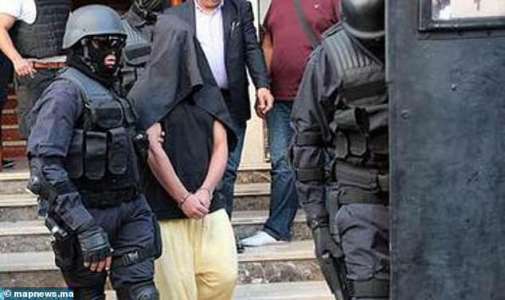
Former Al Qaeda commander transferred to Morocco
On Monday, the Department of Defense announced it had transferred a former al Qaeda ground commander and weapons trainer from the Guantanamo Bay detention camp in Cuba to Morocco, his home nation. The move leaves 39 detainees in the facility as the Biden administration moves to close Guantanamo.
According to the DOD release, Abdullatif Nasser has been approved for release twice in the last five years. An Obama administration review in 2016 determined that Nasser was no longer a threat to US security, a finding the Trump administration upheld in 2018.
“The United States commends the Kingdom of Morocco for its long-time partnership in securing both countries’ national security interests,” the Pentagon statement reads. “The United States is also extremely grateful for the Kingdom’s willingness to support ongoing U.S. efforts to close the Guantanamo Bay Detention Facility.”
Nasser, 52, has been at Guantanamo Bay since May of 2002. He arrived with a track record of association with Islamic extremist groups since the 1980s, according to the Pentagon, and he joined al Qaeda in 1996 to fight in Chechnya.
He met Usama Bin Laden while working at one of the terrorist leader’s charcoal-production companies in Sudan, and he was sent to Afghanistan, where he trained in weapons, topography, and explosives at an al Qaeda camp.
Nasser then became a weapons trainer and member of the al Qaeda training subcommittee. Additionally, Nasser fought for several years on the front lines with the Taliban around Kabul and Bagram during the pre-9/11 Afghan civil war.
By the time of the US invasion in 2001, Nasser had risen to be a commander in the al Qaeda ranks, leading a retreat from Jalalabad, Afghanistan, to the mountain redoubt of Tora Bora. During the Battle of Tora Bora, Nasser directed combat operations against American troops.
How exactly Nasser came under US custody is murky. According to Human Rights First, Nasser’s attorney said Nasser had been sold to US forces for a bounty. Following the US invasion of Afghanistan, the US paid “bounties” ranging from $3,000 to $25,000 for individuals who had connections with al Qaeda and the Taliban.
Regardless of how Nasser came into US custody, he was never charged with a crime during his nearly two decades at Guantanamo.
Nasser’s attorney, Khalil Idrissi, told the Military Times that the years Nasser spent at Guantanamo “were unjustified and outside the law, and what he suffered remains a stain of disgrace on the forehead of the American system.”
With Nasser headed back to his native Morocco, only 39 detainees remain at Guantanamo. According to the Military Times, nearly 800 individuals have passed through the facility since it opened in 2002, most of them held without charge and most having departed by the end of the Obama administration. Calls to close Guantanamo date nearly to its opening, though congressional resistance has often thwarted plans to do so.
Of the 39 remaining prisoners, 10 are eligible for transfer, 17 could be eligible after a review process, 10 are being prosecuted, and two have been convicted.
“For almost two decades, the United States has denied justice to the hundreds of men the government has kept detained at Guantánamo Bay indefinitely, without charge or trial,” Daphne Eviatar, director of the Security with Human Rights Program at Amnesty International USA, told the Military Times. “It is long past time to close it down.”
Source: Coffee Ordie





